California RFI
Hi all
I will be visiting California for the last 10 days of October. It won’t be a hardcore mammal watching trip but I will be spending a good chunk of my time looking wildlife, particularly potential mammal lifers.
There is already a huge amount of California info on this site and I also have Vladimir’s guide. In fact so detailed is all this information I’m having serious issues trying fit the best sites into a 10 day itinerary.
I’m pretty keen to see Kit Fox, Giant K-rat and Nelson’s Antelope Squirrel but understand that mammal watching in the Carrizo Plain NM is pretty poor at the moment following the lack of rain. Can anyone who has been there recently confirm if this is still the case? Would I be better visiting Little Panoche Road instead (which would be easier to fit into my plans)?
I also intend to spend some time exploring Yosemite NP and Mono Lake. I’m guessing by late October all the marmots and pikas will be hibernating. Are any of the chipmunks still likely to be active?
Finally, does anyone have any information on where best to look for Pygmy Rabbit in the Mono Lake area?
Any help or advice would be greatly appreciated. If time wasn’t so limited I would visit all the above sites and just see what I could turn up.
23 Comments
-
-
vdinets
Carrizo might not be too bad as it got some monsoon rain this summer. As for Panoche, I might be there in mid-October, so I’ll post an update here.
Pikas don’t hibernate, and chipmunks are usually active until the first major snowfall. Last winter they didn’t really hibernate at all, except at high elevations (higher than Lake Tahoe). So you should be able to get them all except for maybe the alpine. Not sure about marmots; try Glacier Point in Yosemite.
Note that there’s a huge traffic jam at Tioga Pass entrance to Yosemite every day, so try to get in before dawn.
The best place for pygmy rabbits at Mono Lake is usually the boardwalk to South Tufa Towers, but they were a bit scarce last fall and completely absent in June. No idea when and if the population will recover.
-
vdinets
If you really want to see a pygmy rabbit in California, I know anoter site near Susanville, but it’s difficult to find and not that reliable.
-
vnsankar123
Hi Vladimir,
If you could let me know the site near Susanville, that would be great. This is a species I’d really like to find in CA. Thanks!!
Venkat-
vdinets
It is called Susanville Sage Grouse Lek. You should be able to find the directions online, but if you can’t, just let me know and I’ll look through my notes when I get home next week. PRs are said to be common there at dusk. I was there last March at dawn and didn’t see any.
-
-
-
Jon Hall
Mike, I might be out there for the last weekend of California.. was thinking of Mono Lake, maybe Beatty NV, and the Pinnacles… from 30 – 2 November. When are you going home?
-
-
Jon Hall
Ha ha. Let’s hope not. I still have some mammals to see there. It’s gonna be the weekend before now (23 October) so will try to meet Mike.
-
-
-
-
vnsankar123
I’ve been meaning to check a spot for Tulare Grasshopper Mouse and San Joaquin Pocket Mice in Panoche. If anyone’s going to be in the area, I’ll just describe the areas I’m thinking of trying. 1. The BLM road into the Panoche Hills (the plains on the plateau at the top are best; this is also a great spot for Blunt-nosed Leopard Lizard, Coast Horned Lizard, and Sage Sparrow) and 2. on the gravel road past Panoche Creek towards I-5 between the New Idria Rd junction and Jackass Pass (the hairpins W of I-5) on Panoche Rd (not Little Panoche Rd). Someone who used to do trapping/surveying at the top of Little Panoche Rd (the plateau plains) said there are lots of Heerman’s K-rats, CA and SJ Pocket Mice, Tulare Grasshopper Mouse, Giant K-rat, and even CA vole in one wetter area.
For reference, I saw Kit Fox and Badger on Panoche Rd (in the plains just W of Jackass Pass) in Oct 2013 and Nov 2013 and saw 30 Giant K-rats and 5 Heermann’s in the same area in April ’14. In April ’14, I also had a Heermann’s and San Joaquin on Little Panoche Rd, but it was slower for me then. I’ve seen California K-rats and what I think are D. venustus elephantinus in the chaparral just W of the valley and Desert Woodrat in Griswold Canyon on New Idria Rd – someone told me they saw Pallid Bat there too…
-
-
bwkeelan
We had about 5 Giant K-rats on the north side of Panoche Rd. at 36.57679 -120.71641 on July 24; these coordinates are very close to those given above. We used night vision gear and then spotlighted when they came really close to the road. Also one San Joaquin Valley K-Rat on the same road, just west of the stream crossing at 36.59460 -120.78065. Finally, 2 Kit Foxes, one on Panoche Rd,, and one on Little Panoche Rd, both in the valley proper. — Brian Keelan
-
-
bwkeelan
Sorry for the belated reply, Vladimir, but we were just leaving on a trip when your query arrived. We are using a 5x Night Owl Nexgen Night Vision Binocular, available on Amazon (www.amazon.com/gp/product/B001H31D0U). We got it this spring while in Texas, as they will not ship to California (complex but related to hunting laws). So we’ve not had a lot of chance to use them but I think the verdict will be positive. Although edge sharpness is poor and focus is difficult, you actually can see quite a remarkable amount in total darkness with the active infrared illumination. Given the extra weight and cost of binoculars and the difficulty of getting matched sharpness in the left and right images, a monocular may be a better choice. — Brian Keelan
-
-
-
Leave a Reply
You must be logged in to post a comment.



vnsankar123
With regards to Panoche Valley, I’ll ask some people I know to see if it’s currently productive. Wildlife viewing should be decent there – I’ve had great luck in previous Octobers (2013 especially). I might actually try and go out there in early Oct and see what I can find – I’ll probably put a post on here. I think Simon Feys was in Carrizo earlier this year and was able to find K-rats, so you may want to ask him about that option too…
I suspect some Chipmunks will still be active in the Sierra, but there are people here who can answer this better than I can.